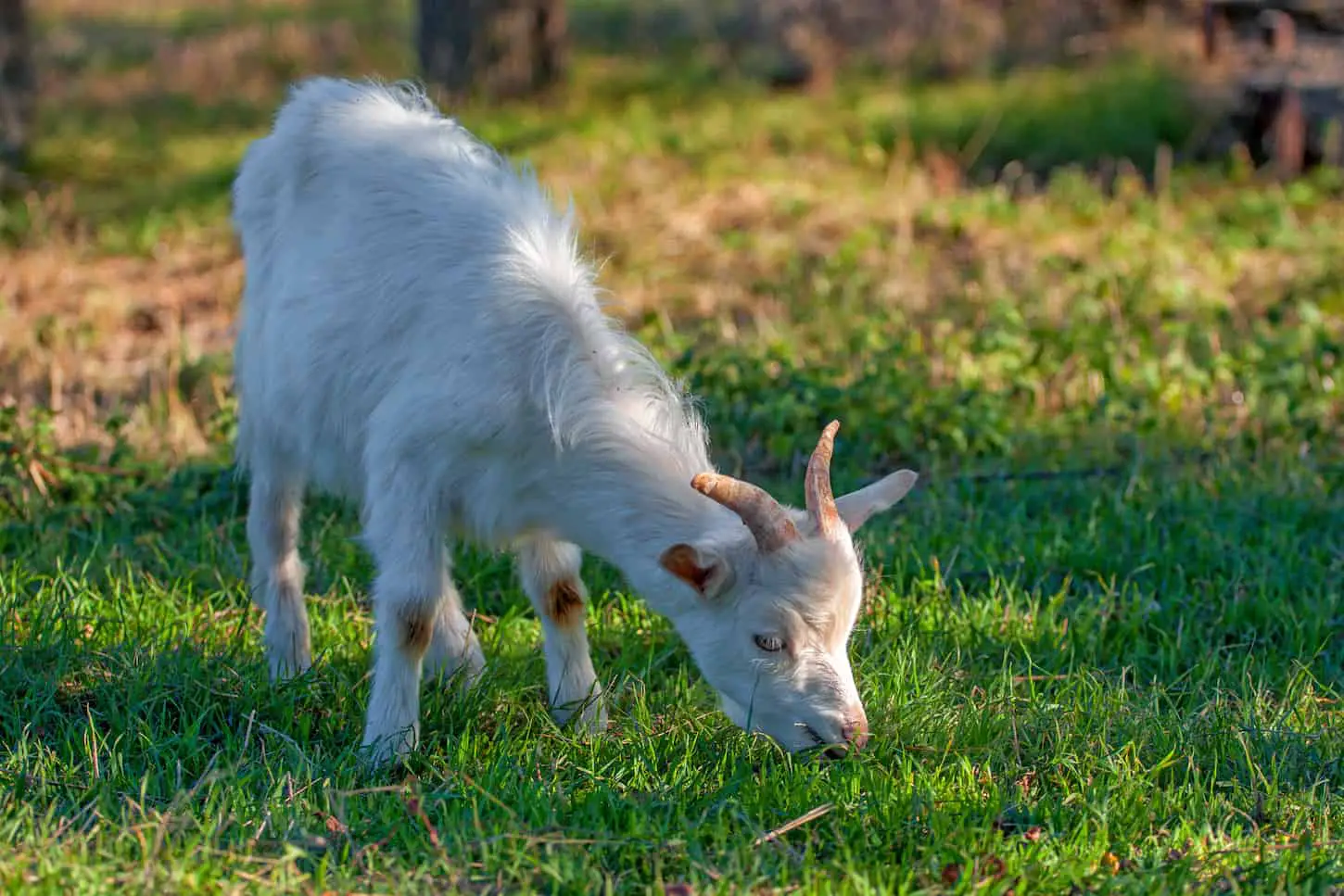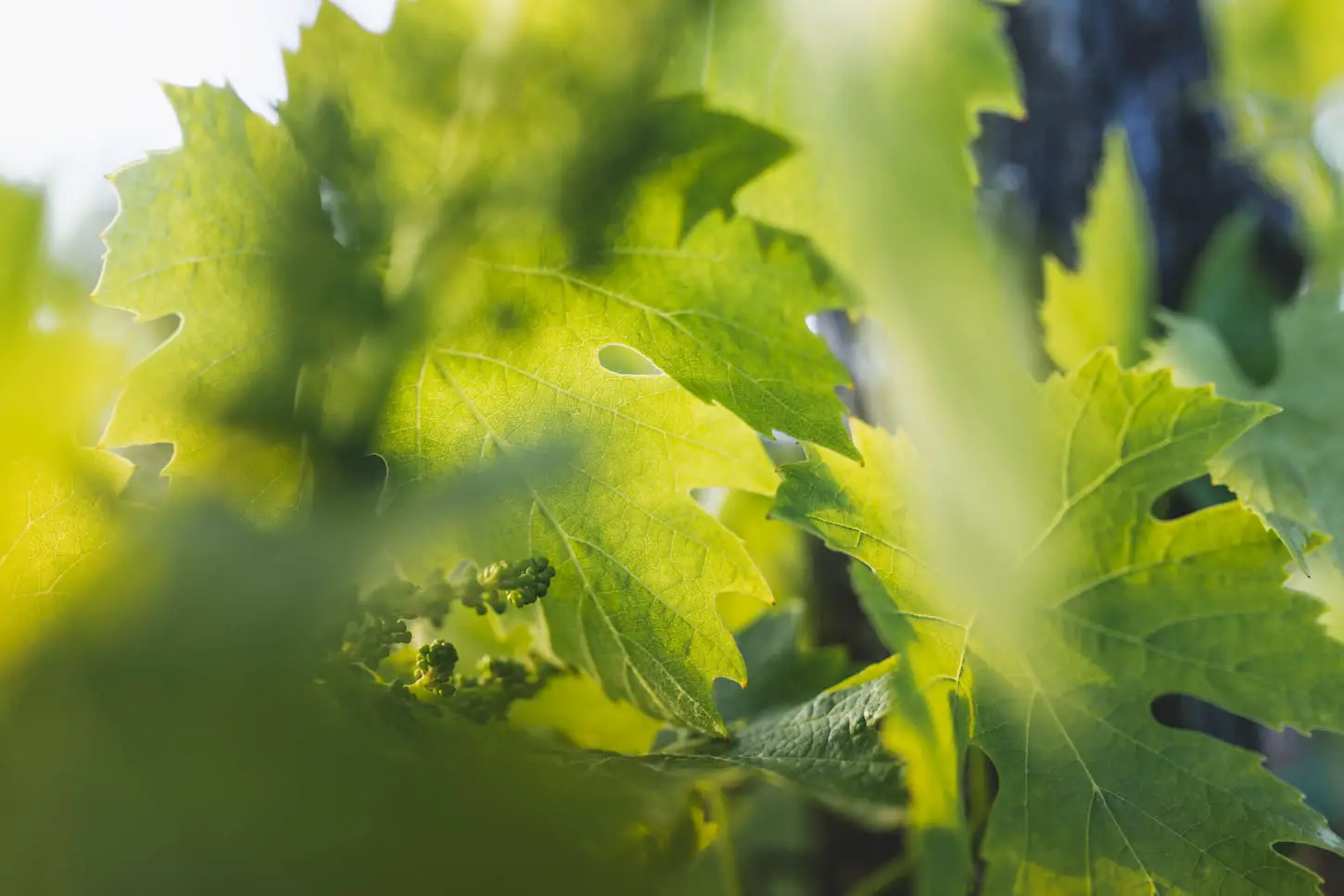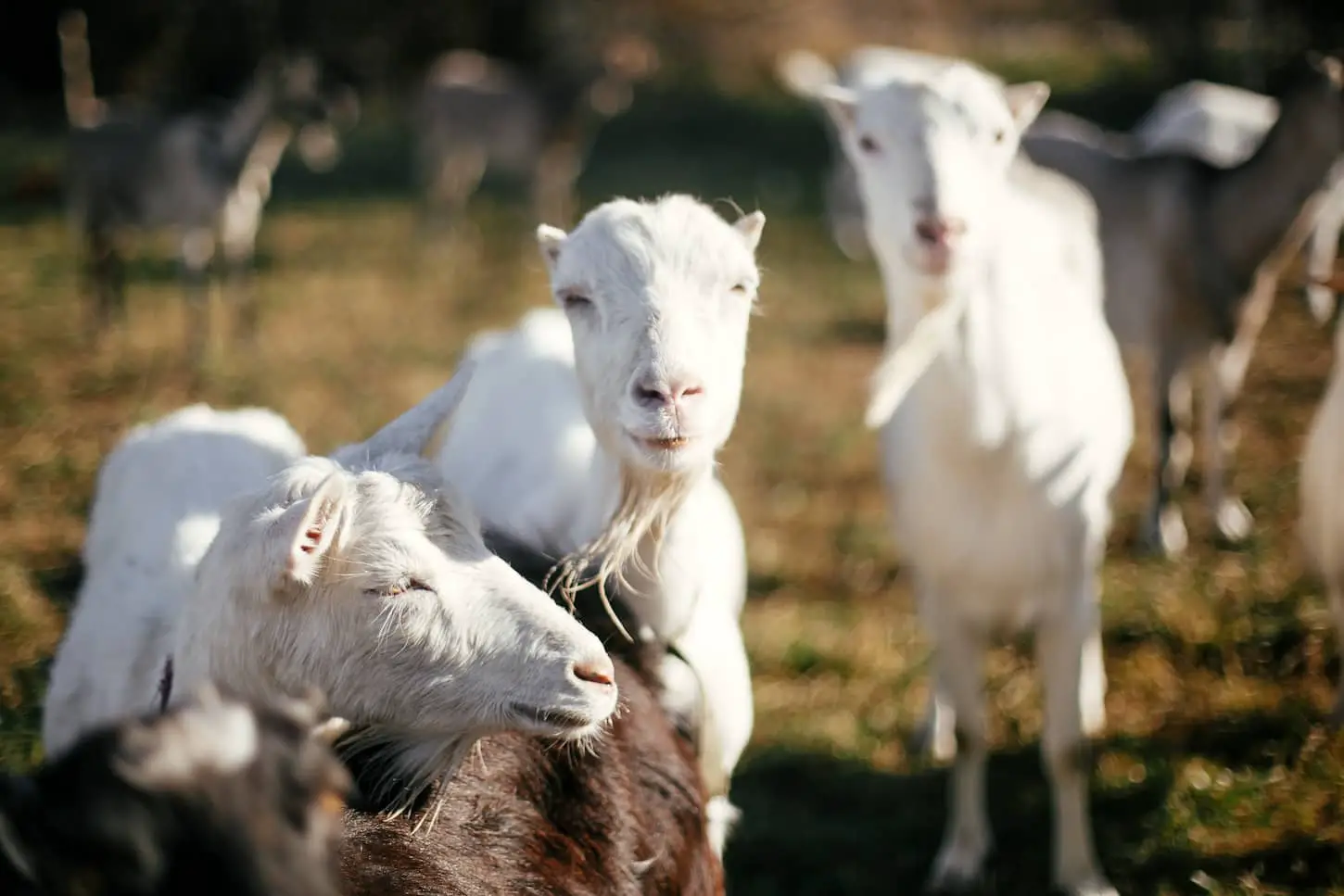If you’ve had the privilege of being acquainted with goats, you’ll be familiar with their gluttonous habits. Goats are known to never hesitate when it comes to an opportunity to feed. When there’s grass, weeds, or brush, they will often eat whatever’s in front of them – kudzu included.
Goats can and do eat kudzu, as most parts of the invasive plant are edible and safe for goats. Being rich in crude protein makes kudzu appealing and palatable to them. Goats are part of the main defense in getting the invasive vine under control.
Are you thinking of feeding your goat’s kudzu? Make sure to keep reading for everything you need to know about goats and their kudzu-eating ways.

What is Kudzu?
Kudzu – a leafy climbing perennial vine – is originally native to Japan and southeast China, but it can now be found all over the southeastern U.S. While it’s gained notoriety for being a weed that grows everywhere, it can be a nutritious source of food for livestock. It also has a history of being used in traditional medicines and in cooking.
This plant with strong vines can grow up to 60 feet in a season. Due to its fast growth and tendency to smother other plants, kudzu is considered a pest of an invasive species.
Luckily, it can be controlled by using it as feed for livestock. It’s cheap and contains ample sources of nutrients for herbivorous animals, including goats.
Do Goats Like to Eat Kudzu?
Goats prefer eating other forages such as hay and grass, but they will eat kudzu when it’s readily available. Goats enjoy eating kudzu well enough that whole herds have been officially hired by Southern Appalachian Highlands Conservancy to remove the vines. Goats can even consume the woody stems and thorns of the kudzu plant.
Kudzu has no natural predators in the United States, making it a difficult plant to control or eliminate. It’s also difficult to control with machinery or chemical herbicides.
Thankfully, kudzu is considered high-quality feed for most grazing animals. So, goats are one of the most effective methods of controlling kudzu.
It’s in a goat’s nature to be browsers, not grazers. They’ll eat anything in its way: grasses, brush, grapevines, and more. Unfortunately, they’re not trained to only eat certain plants and leave others alone.
Make sure to protect what you want to be saved from your goats, including goat-toxic plants.
Is Kudzu Good for Goats?
Kudzu can be beneficial for goats when it’s a part of the right diet. The unique plant is a good crude protein source for goat rationing. There’s around 15 to 18 percent crude protein in kudzu, as well as fiber content.
In particular, the leaves contain a richer amount of crude protein, more so than the stem, vines, or any other part. On the other hand, the stem has richer fiber content than the leaves.

Is Kudzu Poisonous for Goats?
As fodder, kudzu is harmless to most farm animals and livestock, especially browsing animals like goats. In moderation, the leaves, flowers, vine, vine tips, and roots can be fed to goats without issues.
While kudzu seeds may not be toxic to goats, they are considered inedible, so caution should be exercised when dealing with this part of the plant.
Please note that other poisonous plants may grow among the kudzu. Poison ivy is one such vine that may follow the kudzu. Thankfully, goats can eat the poison ivy, too.
Make sure to refer to your veterinarian if your goat shows signs of being poisoned. Vomiting and diarrhea are common signs of poisoning to watch out for in the rare case it happens. It’s also important to note that even the harmless parts of the plant – leaves, flowers, vines – has the potential to cause complication if fed in excess.
Which Are the Best Breeds of Goats for Eating Kudzu?
The best brush goats are usually mixed-breed crosses between a meat goat breed and a dairy goat breed. This is because they tend to be larger, which can reach hard-to-reach brush, and they can be bred at little cost. Crossbreeds are also good-tempered and have stronger parasite resistance than other heritage purebreds.
If goats had a superpower, it would be the ability to clear overgrown brush. Landowners are known to rent goats to clear brush and weeds, like kudzu, from their property because of goats’ superb brush control. While most breeds have similar traits, there are certain types of goats that are better at utilizing their wide palate for brush control.
Here are some breeds you might want to have to help clear kudzu:
- Boer Goats. Originally native to South Africa, the Boer breed is known for its large size. A mature doe can weigh up to 220 pounds, while a Boer buck can go up to 340 pounds. While quantity is important to them, they’re also required to eat better. Quality fodder sustains these small giants, such as kudzu.
- Alpine Goats. Large in size, Alpine goats will also require larger amounts of feed. They’re also pleasant to work with and are known to be good herd leaders. Since they’re aggressive feeders, they are capable of reaching higher parts of plants and trees to get what they want.
- Kiko Goats. Don’t let its big size fool you – Kiko goats can be extremely docile and quiet. As a hardy breed, Kiko goats are good to have around, especially during unfavorable weather conditions. They’ll also have fewer parasite and hoof problems, which can save you visits from the vet.

Final Thoughts
Goats can eat kudzu with no complications – they enjoy it, it contains nutrients, and it helps with the plant’s aggressive growth. They’re so good at consuming the plant that many farmers and landowners have utilized this benefit to clear their overgrowing brush.
While kudzu is not poisonous to goats, excessive feeding on something – kudzu included – is generally not good for their diet. Otherwise, kudzu is considered an optimal fodder thanks to its protein content. If you’re new to feeding your goats kudzu, always refer to your veterinarian for advice.
So if you’re trying to keep kudzu under control, goats are going to be your best bet. Now, if you don’t want to keep a giant herd of goats on hand, other livestock animals can eat kudzu safely, too.
Make sure you check out which ones can eat kudzu safely by reading these articles I’ve written on the topic.
Best of luck keeping that kudzu under control, friends!
Resources
Learning from your own experience is essential, but learning from others is also intelligent. These are the sources used in this article and our research to be more informed as homesteaders.
- “Brush Goats: 8 Best Tips – Brush Control & Land Clearing.” Goat Farmers, www.goatfarmers.com/blog/brush-goats-brush-control-land-clearing%2F. Accessed 21 Sept. 2021.
- Evans, Bill. “Kudzu-Crunching Goats Hard at Work, Help Clear Land for Future Farmers Program.” WLOS, 11 Aug. 2018, wlos.com/community/carolina-moment/kudzu-crunching-goats-hard-at-working-helping-clear-land-for-future-farmers-program.
- “Goats for Weed Control: Everything You Need to Know, Including How to Rent Goats.” Gardening Channel, 17 Oct. 2015, www.gardeningchannel.com/goats-for-weed-control-everything-you-need-to-know-including-how-to-rent-goats.
- Glass, D. and Al-Hamdani, S. (2016) Kudzu Forage Quality Evaluation as an Animal Feed Source. American Journal of Plant Sciences, 7, 702-707. doi: 10.4236/ajps.2016.74063.
- Gulizia JP, Downs KM. A Review of Kudzu’s Use and Characteristics as Potential Feedstock. Agriculture. 2019; 9(10):220. https://doi.org/10.3390/agriculture9100220
- “Kudzu in Alabama – History, Uses, and Control.” Alabama Cooperative Extension System, https://web.archive.org/web/20120616073734/http://www.aces.edu/pubs/docs/A/ANR-0065/.
- “Kudzu: The Invasive Vine That Ate the South.” The Nature Conservancy, 9 Aug. 2019, www.nature.org/en-us/about-us/where-we-work/united-states/indiana/stories-in-indiana/kudzu-invasive-species.
- “Things That Are Toxic To Goats.” The Open Sanctuary Project, 14 Sept. 2021, opensanctuary.org/article/things-that-are-toxic-to-goats.